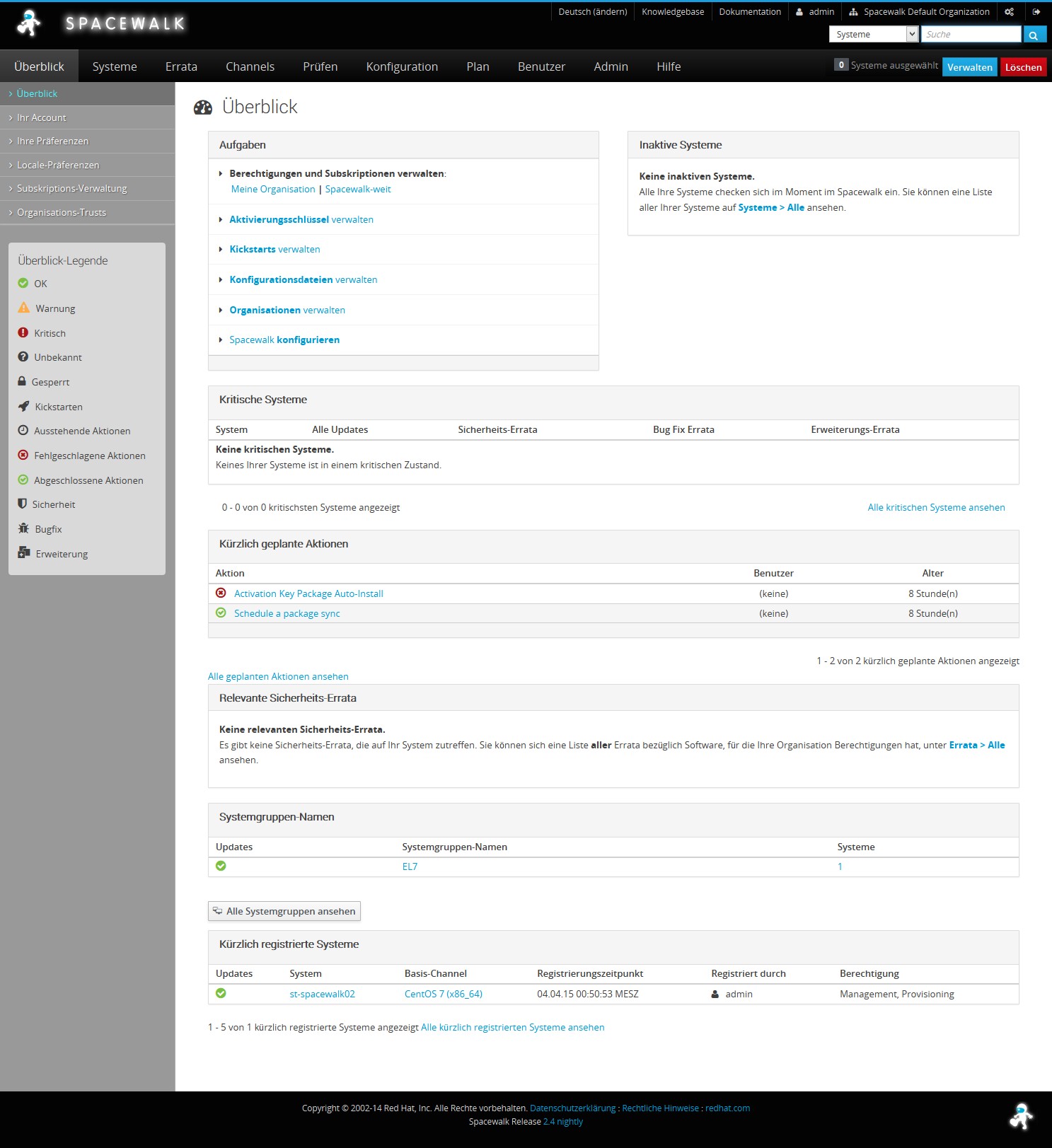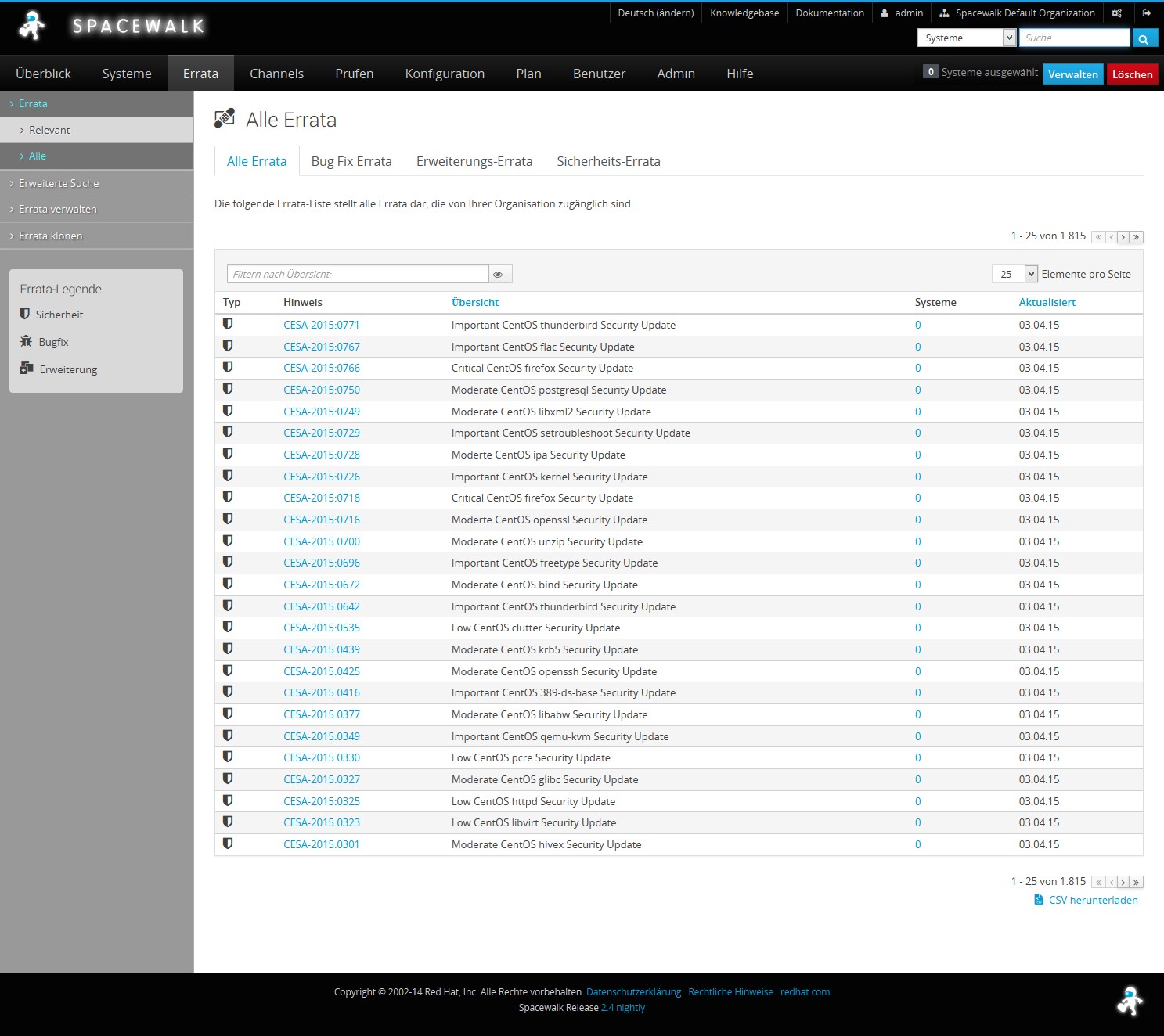Spacewalk 2.3 released
After Red Hat Satellite 5.7 was released 3 months ago Spacewalk version 2.3 was published on 14th of april 2015 after 9 months of development. Like the commercial spin-off the recent management suite also offers a more modern web-interface. With version 2.2 this interface's user experience was overhauled by HTML5, jQuery and Bootstrap. Die updated web-interface is well-arranged and more functional.



Enterprise Linux 7 systems can now be used as Spacewalk server - due to missing packages and broken package dependencies this was not possible in the previous release and it was necessary to use a EL6 host. EL7 clients were already supported - now it is also supported to manage Fedora 21 clients.
The web-interface now uses Java calls instead of Perl calls. In this context several new API calls were added:
activationkey.clone- clone an activation keyconfigchannel.deployAllSystems- deploy configuration files on all registered systemskickstart.listKickstartableTreeChannels- list all kickstartable treeskickstart.profile.getAvailableRepositories- lists all available software channels of a kickstart profilekickstart.profile.getRepositories- lists linked software channels of a kickstart profilekickstart.profile.getVirtualizationType- lists virtualization type of a kickstart profilekickstart.profile.setRepositories- links software channels to a kickstart profilekickstart.profile.setVirtualizationType- sets virtualization type of a kickstart profilesystem.unentitle- removes all entitlements of a systemuser.setErrataNotifications- sets or removes errata notifications
The full API-documentation as well as the release notes can be found on the Spacewalk website.
In accordance with the annotation of the last Spacewalk version the monitoring functionality and Solaris support were dropped. This is a difference between Spacewalk and Red Hat Satellite 5.7 - this product still offers this functionality. I advocate this development as these functions were kind of rudimentary and weren't updated for a long time. Even for small landscapes the monitoring function was often too inflexible - using alternatives like Nagios or Icinga offers more functionality. Proprietary UNIX systems like Solaris are becoming less important - in private as well as enterprise segments. Dropping this support was only a question of time.
In summary 220 bugs were fixed since the last release, the development process for the next version 2.4 has already begun.